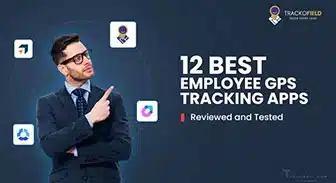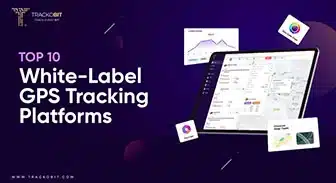-
TrackoBit
Manage commercial vehicles with the new-age Fleet Management Software
TrackoBit -
TrackoField
Streamline your scattered workforce with Field Force Management Software
TrackoField -
Features Resources
-
Blog
Carefully curated articles to update you on industrial trends. -
White Paper
Insightful papers and analysis on essential subject matters. -
Glossary
Explore an alphabetical list of relevant industry terms. -
What’s New
Get TrackoBit & TrackoField monthly updates here. -
Case Study
Explore the cases we solved with our diverse solutions. -
Comparisons
Compare platforms, features, and pricing to find your best fit.
-
About Us
Get to know TrackoBit: our team, ethos, values, and vision. -
Careers
Join the most dynamic cult of coders, creatives and changemakers. -
Tech Support
Learn about our technical support team and services in detail. -
Events
Check out the exhibitions where we left our marks and conquered. -
Contact Us
Connect with us and let us know how we can be of service.
Guide 101: How to Start a GPS Tracking Company
- Author:Drishti Dua
- Read Time:12 min
- Published:
- Last Update: February 25, 2026
Table of Contents
Toggle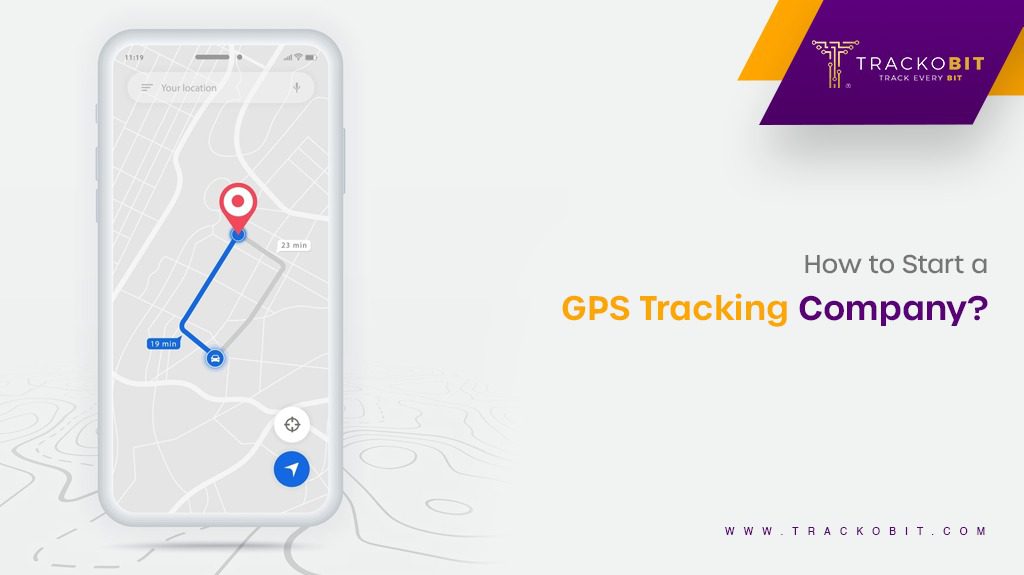
Are you thinking about starting your own GPS tracking company? The growing numbers this industry is displaying these days are attracting several new players to this sector, looking for their big break. Don’t know where to start?
Table of Contents
Toggle
Well, you have stumbled across the perfect blog.
Let us take you through all the things you need to keep in mind while assembling the jigsaw of your company. But before we get to that, let’s understand the process that goes behind the starting of such a company.
Steps to Follow When Forming a GPS Tracking Company
With a predicted CAGR of 15.1%, the GPS tracking system market is growing exponentially. Under a capitalist economy, competing for profits is inevitable. This is why we have formulated a guide for you to follow while starting your own aggregator company. These steps include:
-
- Step 1- Source The Software: Hunting for well-built software is the first step in the journey to becoming a GPS Tracking System Provider. In today’s age of automation, GPS tracking software has evolved into a complete management setup. Some parameters need to be followed while choosing the correct GPS tracking system for your requirements.
- Step 2- Buy Hardware Products: After getting the software, it is time to piece together the second part of this puzzle. Hardware is what runs the GPS tracking process. From sensors to the SIM, everything falls under the hardware of this system. It plays the role of collecting and sending data to the software.
- Step 3- Market Knowhow and Business Prospects: After integrating the software and hardware aspects of GPS tracking, you require a set of features for pitching to potential customers. For this process, a study of the market and its requirements is essential.
- Step 4- Tech Support and Client Management: Acquiring clients is hard but keeping them content and satisfied is an even bigger battle. It is not possible to do so without preparing a customer care program for your business. Being the point of contact between your software and hardware provider, and clients requires a certain degree of promptness.
- Step 5- Expansion: Expansion of both the team and the company is essential for growth. Running all operations of a business is strenuous for a small labour force. Thus, a large team can communicate with clients but also seek out potential customers for business growth.
- Step 1- Source The Software: Hunting for well-built software is the first step in the journey to becoming a GPS Tracking System Provider. In today’s age of automation, GPS tracking software has evolved into a complete management setup. Some parameters need to be followed while choosing the correct GPS tracking system for your requirements.
How to Choose the Best Fleet Management Software For Your Business
Well, now this is a million-dollar question and we’ll help you cash on that.
We know that simply giving you theoretical steps will not help while starting a company from scratch. Each aspect mentioned above-required aggregators to put in a lot of research to find things that suit their requirements and the vision they have for their business.
Thus, we have formulated a checklist for you to refer to and see if the software and hardware you are selecting will work together in harmony.
You may thank us later!
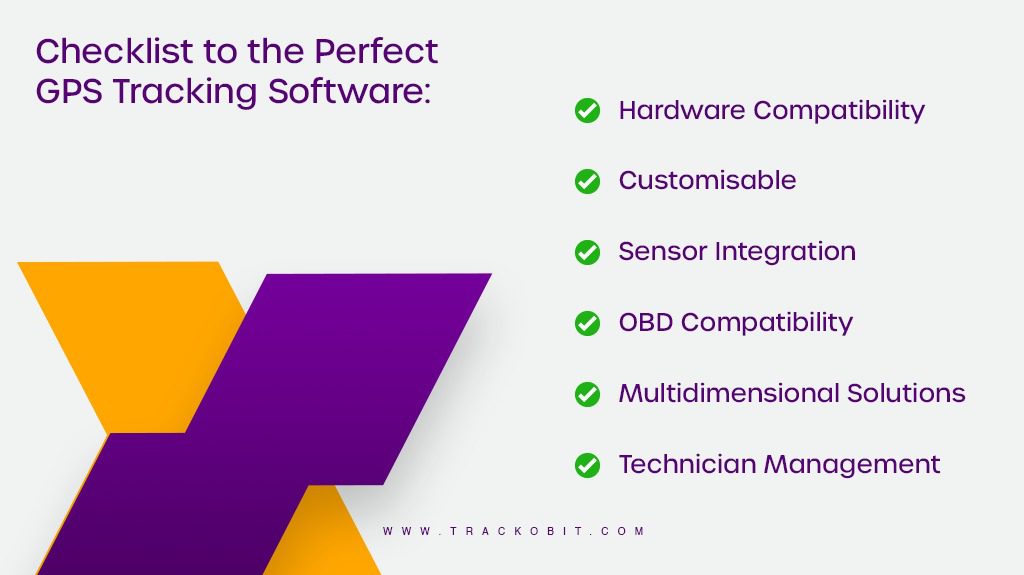
Compatibility With Majority Hardware
Choosing software with maximum compatibility should be an aggregator’s top priority. You might wonder why this is necessary. Just buying the hardware according to your software should suffice right?
While this will work perfectly fine in the current situation, this plan can backfire on you under several circumstances. For example, your hardware provider stops making this equipment. So now you have limited options when looking at a replacement which might affect the quality of your service. On the contrary, having software that can support various protocols and easily integrate all kinds of hardware can save you from a predicament.
Should be Customisable
Is there anybody willing to spend money on software that has all the generalised features even low-quality software can offer? We don’t think so. This is why aggregators need to keep in mind that the software they select for their business needs to have the option for them to customise features.
Not all fleets have the same requirements. The needs of a business vary concerning its function. This is why customisable software is a must in the field of fleet management. This customisation can be in the form of solutions offered by the system, their alerts, and the kind of sensors they want to be integrated with their system. The attraction of having a unique system crafted just for them will also help increase your brand loyalty.
Allows Sensor Integration
For a fleet to run smoothly, a little help from sensors is very important. Sensors play the primary role in collecting data. gathering actionable insights, and helping shape decisions.
While it is impossible to list all kinds of sensors that are used by fleet businesses, here are a few that are used most often:
- Fuel sensors
- Proximity Sensors
- Load Sensors
- Thermometers
- Door sensors
- Tilt-angle sensor
Compatibility With OBD
The OBD is used to diagnose the condition of a vehicle from the inside in real time. This feature can be very useful for fleets responsible for transporting consignments. Any mistake on the road because of a vehicle malfunction can translate to heavy losses for businesses. If the software you have chosen has this feature, it can become a great way of attracting clients to your service.
Must Include a Wide Array of Solutions
The kind of solutions a fleet management system offers determines whether a fleet business will be interested in testing out an aggregator’s services. This is why you should always look for these solutions in the software before section:
-
- Route Planning: This solution helps fleets craft a route for their vehicles based on their halts and sequences. Thus, saving a lot of time previously wasted by impractical routes. This also reduces the engine hours of the vehicles, keeping their conditions optimal for longer. Businesses can also plan their routes based on route density and delivery planning, ultimately increasing their customer satisfaction.
- Driver Behaviour Analysis: A driver on the road has a lot of responsibilities, the biggest of which is ensuring the safety of the vehicle and the consignment they carry. Driver Behaviour analysis makes it easy for fleets to track their driver’s activities on the road. Managers receive alerts every time said drivers over speed, accelerate, apply harsh brakes, cut corners, or idle.
- Fuel Monitoring: Through its drainage and refill alerts, the fuel monitoring solution eliminates any chance of fuel misuse. Managers have access to their vehicles’ real-time fuel levels and fuel history. Thus, businesses can make insightful decisions pertaining to fuel usage.
- Video Telematics: With solutions such as DMS and ADAS, managers can monitor their driver’s in-cabin activities and events unfolding outside the vehicle, respectively. The dashcams integrated with this solution send real-time alerts and visual proof of their driver’s distracted driving instances.
- Asset Tracking: When a vehicle is transporting consignments from one place to another, it becomes your responsibility to ensure that the consignment does not get misplaced. This solution can be a game changer for the logistics sector. Aggregators can thus use this idea to get more clients who prefer multi-modal logistics.
Should Provide Managers With Reports
Business reporting is not dealing with objects, it is dealing with relationships between objects.
– Hasso Plattner
Insightful decision-making is very important for any fleet to progress in the market. For that, managers need to have a good set of reports that not only snoop on individual aspects of vehicles/fleets but also offer cross-facet reporting. This requirement can be an opportunity for aggregators to build a strong clientele. Software that collects information and presents it in categorised form can aid the process of vehicle management, especially when paired with good hardware.
Now that we have understood the things that make up good software, let us dive into the essential qualities of hardware to support fleet management software.
Must-Have Technician Management
Maintaining all the hardware attached to vehicles itself is a difficult task. This is why the software of your choice should also aid your clients’ hardware maintenance. The admin app, a.k.a technician management aids the tracking process of their GPS operators and technicians. Mitigating challenges boost customer satisfaction.
Selecting Hardware for your Fleet Management Software
Hardware equipment is essentially what executes the work of the software in its physicality. Imagine an aggregator who invests in good software but doesn’t put in the same investment in the hardware aspect of this process. The money businesses anticipate saving by using this system will be drained into repair and maintenance.
So what are the essential features for hardware?
Compatible With your Selected Software
We have already discussed the reason why it is essential for software to be compatible with many hardware. But the software aspect of your package cannot carry the entire responsibility of fitting these jigsaw puzzles, can it? Aggregators need to also make sure that the hardware products they purchase can be integrated with their software as well.
Good Quality
Products with a strong built and promising life span will reassure customers of the quality of your service. First impressions last and flimsy-looking hardware can be very damaging to your business’ reputation.
Bad quality hardware products also endanger the safety of your customer’s fleet. This ultimately leads to a loss of loyalty amongst your clientele, ultimately translating to monetary losses. Some of the parameters that aggregators should ensure their hardware meets are:
- Water-proof: Hardware used with vehicles is often exposed to harsh weather conditions. Thus, along with being made from tough material, the equipment also needs to be water-resistant. Otherwise, the cost of repair and replacement of these devices can become major profit guzzlers for fleets.
- Good Battery Life: Vehicles that need to complete tasks involving long periods of time are already on a time crunch. This is why it is essential for hardware devices to have good battery backup, or for them to be linked with the vehicles’ battery.
User-Friendly Products
Equipment that is difficult to set up and use poses a challenge for technicians and clients. It completely defeats the purpose of switching to automotive management when managers still struggle and waste time at the end of the day. You might be thinking, managers do not have to worry about the hardware part of the fleet management system anyways. Especially when they have been professionally installed.
But if we see hardware like the SOS button, a bad installation can send false alerts to managers, disrupting the management process. On the other hand, it might not send alerts altogether, stranding drivers in difficult situations. This can damage your business’s reputation and client loyalty.
Commonly Used Hardware in Fleet Businesses
It is totally up to the aggregators to choose what kind of hardware they want to offer clients, aligning them with the software. But this list is aimed to become a checklist for you to use while formulating your pitch to potential customers.
- Dash Cams: With the age of growing technology, video telematics is no longer a choice but a necessity for fleets. This system allows managers to keep track of their drivers’ real-time activities. Thus, reduced distracted timing automatically reduces the accident rate of vehicles.
- Sensors: We have already discussed just how important it is for fleets to integrate sensors with their operations. For sensors to communicate with the software efficiently, it is very essential that aggregators choose compatible sensors. Sensors make it easy for managers to navigate their fleets as well, increasing their scope and productivity.
- SOS Button: In case of any emergency, the SOS button (also known as the panic button) can come handy. All the drivers have to do is press this button to send an alert to managers. This feature makes fleets safer and can be a very good inclusion with coal and construction fleets, where the risk is marginally higher than normal fleets.
- eLocks: Vehicles are most vulnerable when they are parked and in the absence of a driver. Many instances of theft take place during this time itself. In case a manager detects any suspicious activity from the vehicle, they can lock the vehicle right from the system, thus effectively stopping any attempted theft.
Fleet Management System for Industries
You now have the resources to go start a business. Don’t worry, we have not forgotten about the most important part of doing business, the customers! Any fleet that runs off the roads requires some form of a management system. This is why this list takes you through all the industries working with fleets and exactly why they would want to invest in fleets management software:
Logistics and Transport
A logistics fleet is responsible for transporting consignments from one place to another. This process can not only be very time-consuming but also requires extra care from the end of both drivers and managers. Thus, systemised management will help the businesses affiliated with this industry to flourish.
The scope of growth in this industry is huge. The global logistics market is predicted to stand at 6,300 billion by 2024. This is why targeting these industries as clients can benefit any aggregator.
The logistics industry is responsible for a lot of functions and the added work of managing various hardware through different software can be chaotic. This is where aggregators step in for optimisation.
Medical and Healthcare
Formulating a good ambulance network and overseeing their journey also becomes possible through the wide variety of solutions available with fleet management systems. Having aggregators to combine all these features together is not only time-saving but also cost-efficient.
The pharmaceutical Fleet industry also requires cold chain supply for temperature-sensitive medicines and vaccine transportation in the medical industry. Thus, similar to FMCG, this industry also requires integrated sensors to go along with other basic operations.
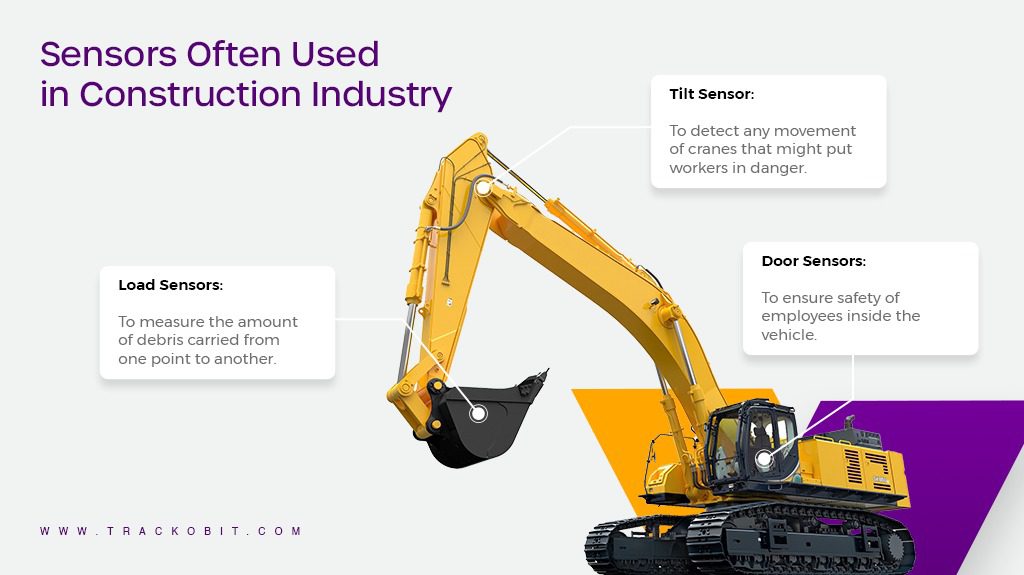
Construction and Mines
Construction and mining sites are some of the most unsafe places for vehicles and equipment to operate. Communication between managers and drivers is very limited when tasks are in progress. In fact, 11.15 of all fatalities on a construction site are due to the employees being struck by objects during vehicle collisions.
The lack of defined routes inside mines and large construction sites also poses a huge issue for managers. But the route planning solution helps them save custom-created trips for future use, making operations much simpler.
Thus, a good security system can be very useful for such fleet businesses. Aggregators can also emphasise the use of sensors in this industry. These sensors include the tilt sensors used with heavy lifting vehicles and the load sensors that prevent over congestion at weighbridges.
Waste Management
An operational model of waste management requires the combination of both route planning and monitoring load sensors. Managers of this industry are also responsible for studying their fleet’s patterns to judge the route density for vehicle allotment. So how can a limited number of managers pull off such time taking tasks? While standard GPS tracking software will reduce some of the workloads, a lot will still fall on their shoulders alone.
This is why this industry can benefit heavily by investing in fully formed fleet management software integrated with the right set of sensors. This confines managers’ scattered work to a single platform. Thus, managers can focus on other operations of their fleet as well.
FMCG
Perishable goods transportation is one tough industry to manage. Well, as aggregators trying to find more clients, this sounds perfect, doesn’t it? With such a time-sensitive industry, solutions like route planning can be helpful in tackling the time wastage caused by issues like route deviation. The ETA and POD feature also help reduce the inventory shrink rate of perishable goods during transportation.
Cold chain supply is another essential aspect of FMCG fields. This opens up the need to integrate thermometers. But how can a manager keep checking on the temperature of a reefer at all times? Using a fleet management system of course!
Agriculture
An agricultural field consists of both the on-field equipment and the vehicles used to send out the final product. Operating such a diverse fleet requires completely different sets of functions and solutions. So how can a manager handle overlooking such a diverse set of operations?
Aggregators in this case can take all the solutions and connect them to a single software. This way, managers do not have to divide their attention but can manage both via a single platform.
Investing in a fleet management system can be very beneficial for an agricultural fleet. It can help them significantly cut down their expenditure. Using this at a forefront of the aggregator’s pitch can help them expand their clientele.
Summing Up
Hopefully, this blog delivered what it had promised. Becoming an aggregator might sound taxing, but it is not that hard. This process is even simpler once you have found the best fleet management software to match your company’s vision.
Well, meet TrackoBit, the best fleet management system out there in the market. It has the best solutions available to optimise a fleet completely. Don’t believe us? Well try out our demo and see it work the wonders itself. Compatible with a wide range of hardware devices, aggregators can make the best combination for their clients. Request a demo today and watch it work wonders!
Drishti Dua, a Content Contributor at TrackoBit has a rich background in literature and professional expertise in SaaS and technology writing. She has carved her niche in the space of Geospatial techn... Read More
Related Blogs
-
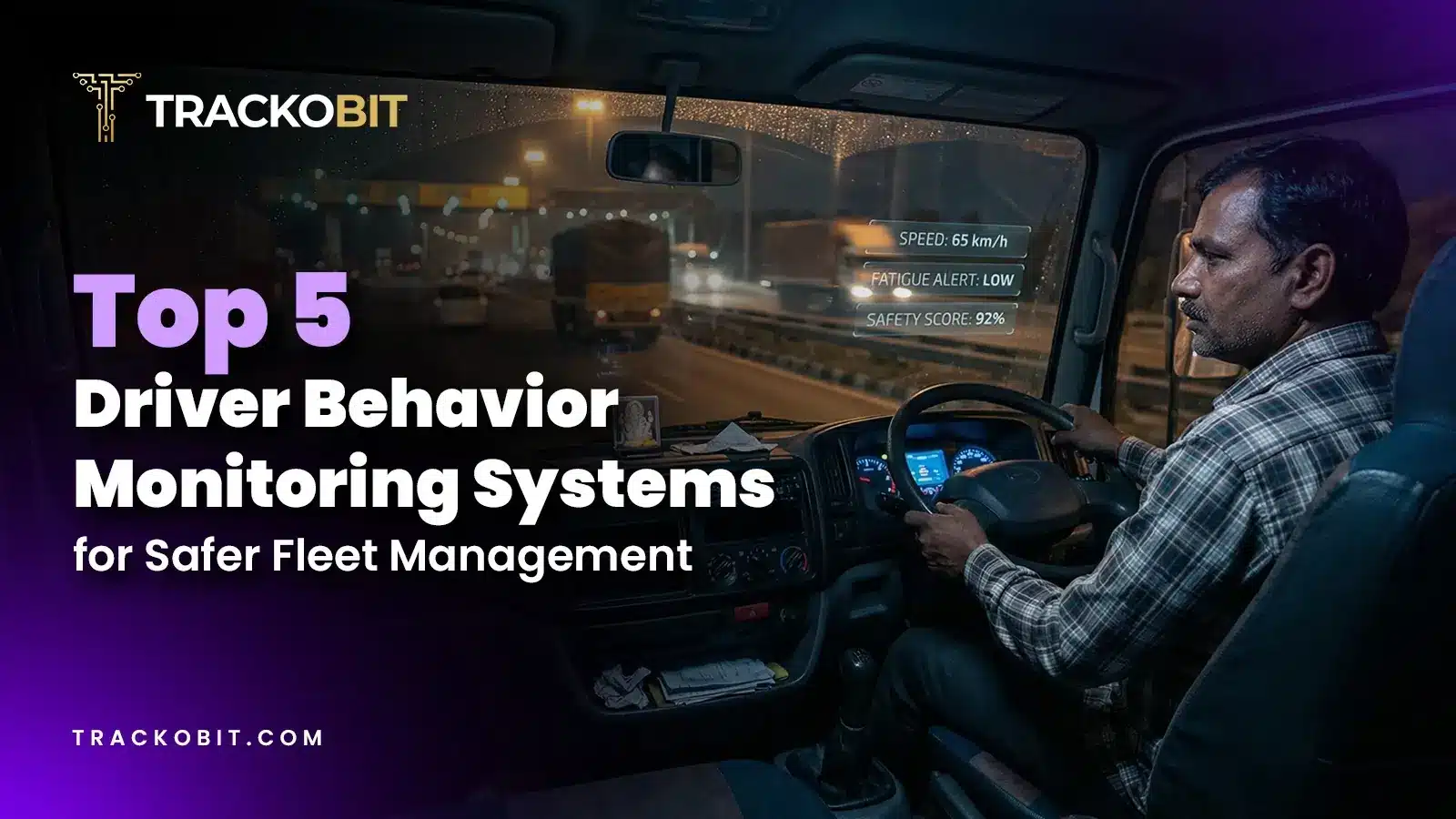
5 Best Driver Behavior Monitoring Systems for 2026
Tithi Agarwal February 23, 2026Having the best driver behavior monitoring system is a necessity as it helps you ensure driver safety and optimize operational…
-
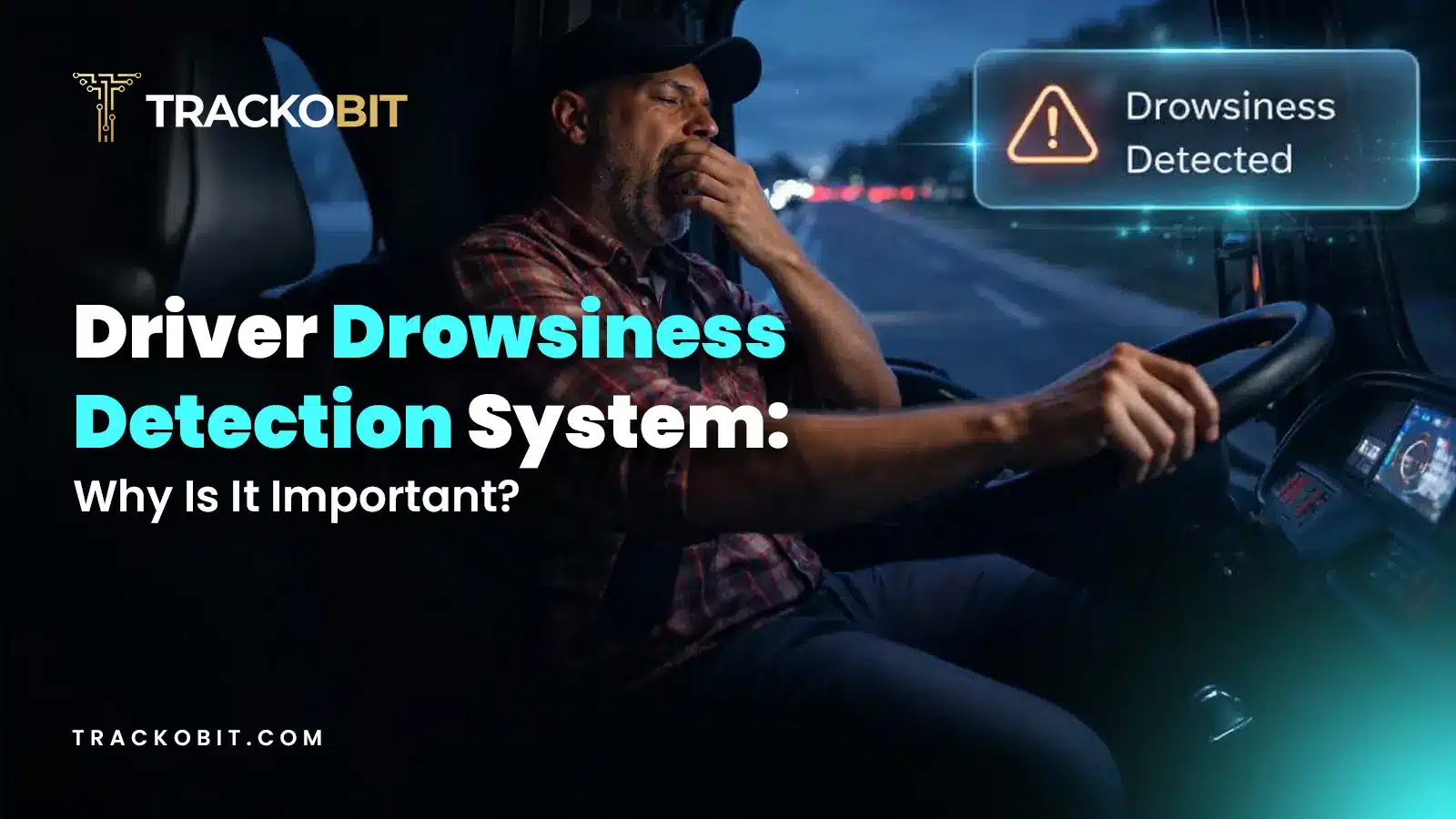
Why is Driver Drowsiness Detection System Important for Fleet Management?
Shemanti Ghosh February 4, 2026A driver drowsiness detection system is critical for fleet management. It helps prevent fatigue-related accidents and reduces operational risks through…
-
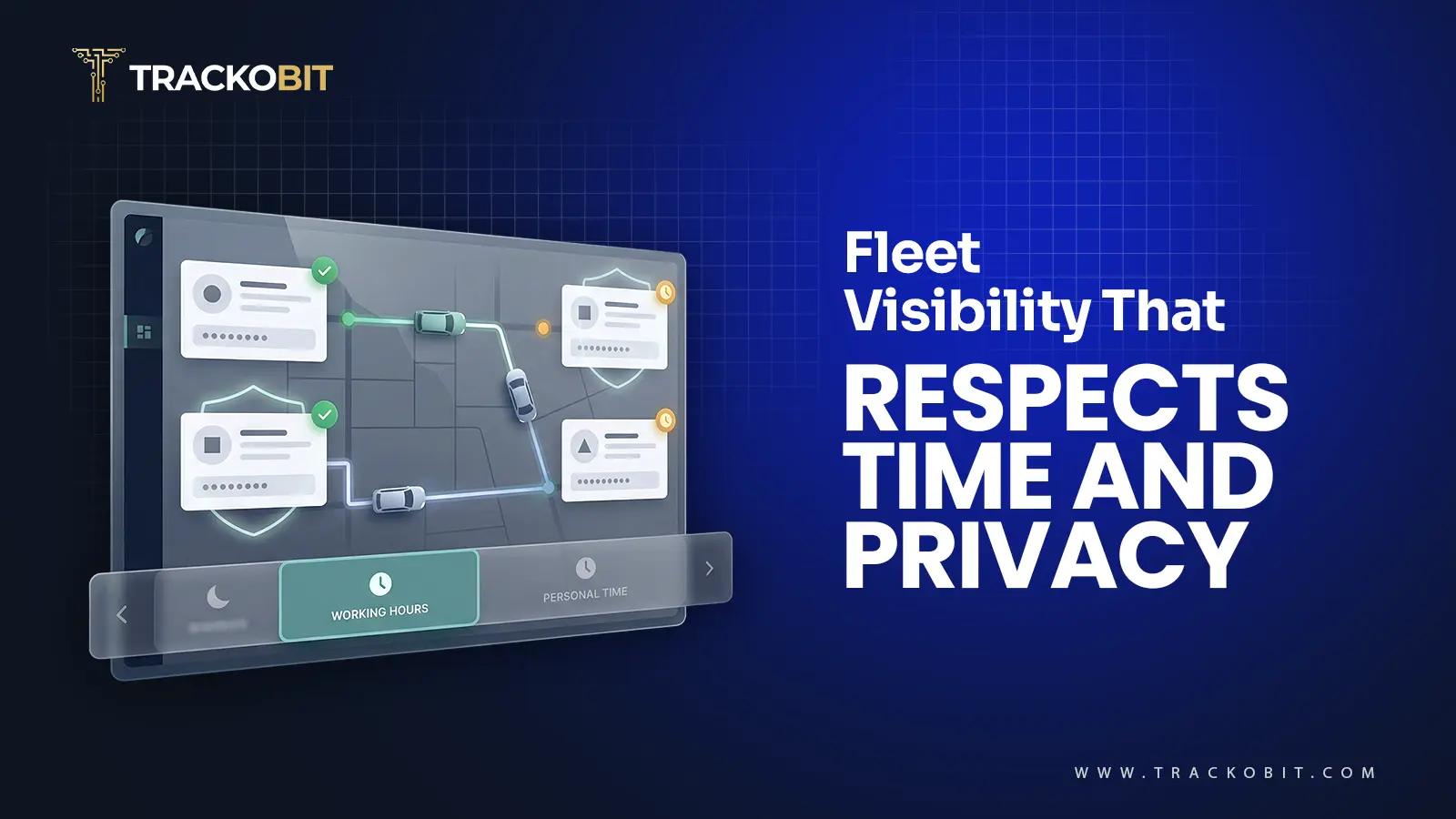
When Tracking Needs a Clock: Rethinking Fleet Visibility
Tithi Agarwal December 24, 2025Read on to understand why fleet tracking works better when it follows working hours. Because visibility should support operations, not…
-
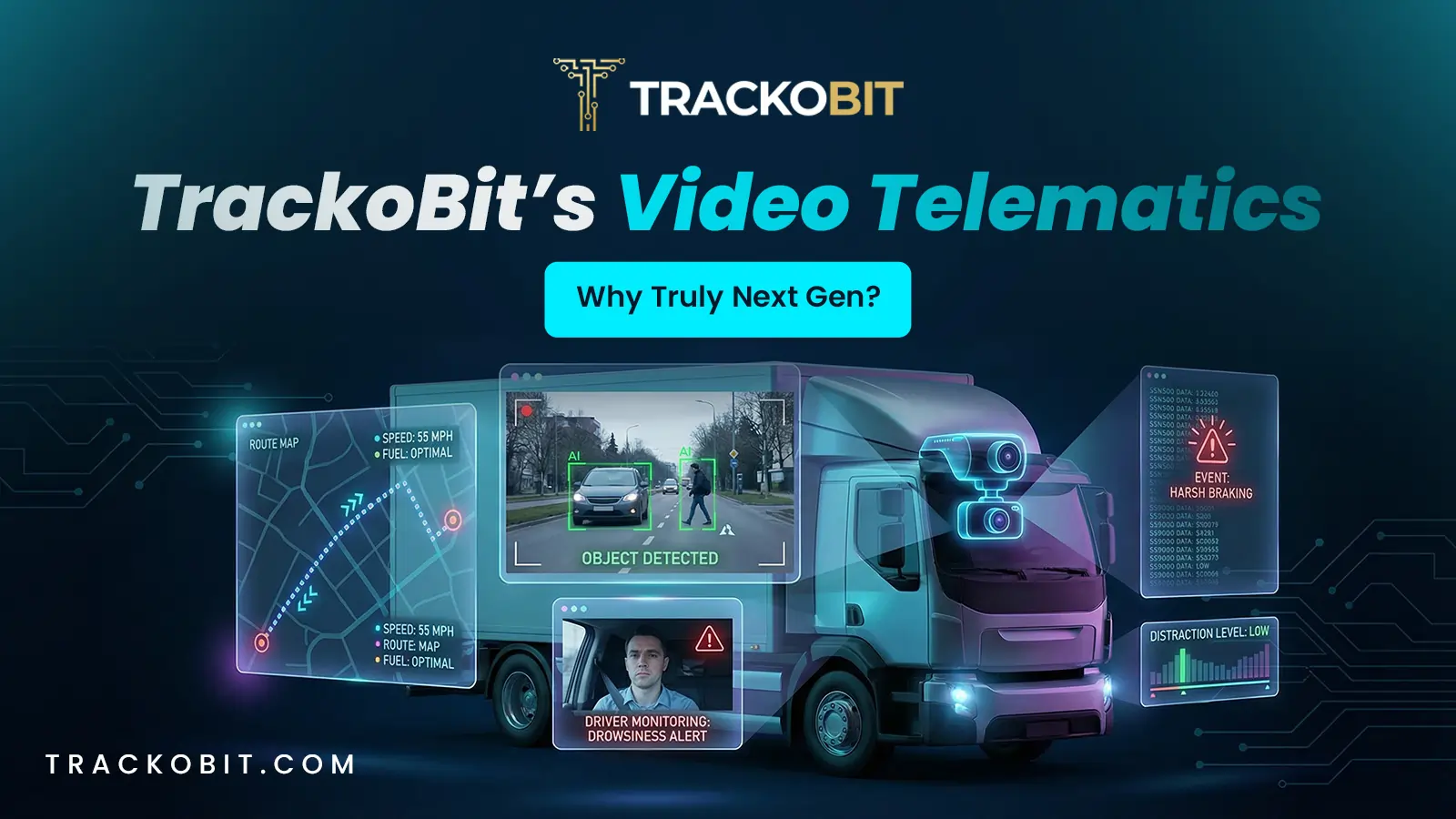
What Makes TrackoBit’s Video Telematics Software Truly Next-Gen?
Shemanti Ghosh December 17, 2025TrackoBit’s video telematics software blends smart video intelligence with full server control. The result? Superior fleet reliability and safety.

Subscribe for weekly tips to optimize your fleet’s potential!
Your inbox awaits a welcome email. Stay tuned for the latest blog updates & expert insights.
"While you're here, dive into some more reads or grab quick bites from our social platforms!"Stay Updated on tech, telematics and mobility. Don't miss out on the latest in the industry.
We use cookies to enhance and personalize your browsing experience. By continuing to use our website, you agree to our Privacy Policy.


































